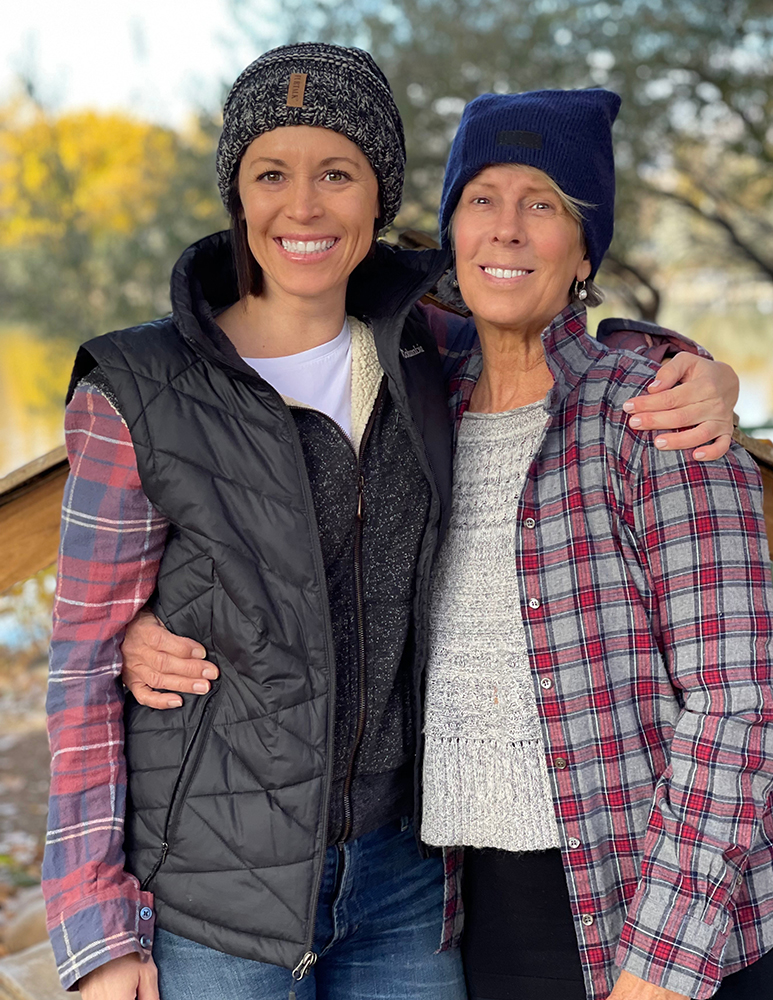Senate Health & Human Services Committee Approves Updates to End-of-Life Options Act in a Bipartisan Vote
Mar 1, 2024
Committee Advances Bill After Hearing Numerous Emotional Pleas from Colorado Voters
Loved ones of terminally ill Coloradans, joined by advocates and clinical experts, expressed gratitude to the Senate Health & Human Services Committee Thursday afternoon for their bipartisan vote of 7-1 to advance legislation (SB24-068) to improve access to the Colorado End-of-Life Options Act. The bill now moves to the Senate floor for its consideration, likely next week.
“We thank Chair Rhonda Fields, Vice Chair Joann Ginal, and the entire committee for hearing Colorado voters’ pleas today and taking this important first step toward greater equity in accessing medical aid in dying in our state,” said Gina Gentry, Colorado Campaign Manager for Compassion & Choices. “We are hopeful and confident that this bill will continue to move forward, under the leadership of Senate sponsor Ginal and Assembly sponsor Kyle Brown, so that these critical updates will come to fruition as soon as possible.”
The committee heard numerous emotional testimonies from Coloradans who watched their loved ones needlessly struggle or fail to access medical aid in dying despite meeting all eligibility criteria.

Meghan Reese testified before the Committee about her mother, Kathleen McDaniel, who planned to use Colorado’s medical aid-in-dying law but was not able to access it due to its overly burdensome restrictions. McDaniel died on June 21, 2022 without the peaceful end she wanted, and was actively pursuing, for a year.
“My mom chose medical aid in dying after battling two terminal cancers– horrific cancers. Her journey ended a year and a half ago, but her wishes were not honored due to a process that is extremely prohibitive,” Meghan Reese, of Centennial, testified before the committee. “I could tell you about her death and how traumatic it was. It was exactly the opposite of what she wanted. But what I’ll say instead is that the amendments to the bill today do not ask for you to condone the fast-forwarding of death, but to mitigate the suffering of someone already dying. This bill is someone’s last wish.”
The 15-day waiting period was “filled with fear, sleeplessness, and tears, as we waited for what would be the most stress-filled and longest days of our lives,” testified Di Larson, of Denver, whose husband Erick was one of 23 Coloradans with ALS who sought medical aid in dying in 2022.
Chair Fields was notably moved by Denver resident John Brackney’s emotional testimony and Denver Post commentary, copies of which he brought along for the committee to read, about his mother’s choice to use medical aid in dying for a peaceful death in February 2022. “Reading the article, I can just see the love that you have for her, and how you care for her,” remarked Sen. Fields. “I agree, we all need to have someone that loves us, and we love them, during this time in our lives.”
The proposed legislation would not change the core eligibility requirements of the current law: a patient must be a mentally capable, terminally ill adult with six months or less to live for the option to obtain a prescription for aid-in-dying medication they may decide to self-ingest to peacefully end unbearable suffering.
The bill would make access to the option of medical aid in dying more equitable by reducing the minimum 15-day mandatory waiting period between the first and second oral requests to seven days, allowing prescribing providers to waive the minimum 7-day waiting period if the patient is unlikely to survive it but meets all other eligibility requirements, and allowing qualified advanced practice registered nurses (APRNs) with prescriptive authority to act as the attending and consulting providers.
Nine other states and Washington, D.C. allow the option of medical aid in dying, and similar access improvements
have been made to the laws in other states, including California, Hawaii, Oregon, and Washington.
A 2018 study by Kaiser Permanente Southern California showed that one-third (33%) of qualifying patients who requested to use California’s End of Life Option Act died before completing the eligibility process, including 21% during their mandatory 15-day waiting period between oral requests.
Subsequently, in 2021, California lawmakers reduced their 15-day waiting period to 48 hours (effective beginning in 2022). Comparing their
medical aid-in-dying usage data from 2021 to 2022, nearly 50% more qualifying, terminally
ill Californians were able to obtain aid-in-dying medication for the option to die on their own terms.
In 2023, Hawaii revised its law to reduce their waiting period to five days and allow qualified advanced practice
registered nurses (APRNs) to be prescribing providers.
In 2019, Oregon lawmakers amended their medical aid-in-dying law to allow a prescribing provider to
waive their mandatory waiting period if the qualifying patient wouldn’t survive it (effective beginning in 2020). Oregon Health Authority’s 2020 usage report showed that 75 patients (20%) were given waiting period exemptions, proving an urgent and significant need for a waiver allowance.
In 2023, Washington enacted a revised medical aid-in-dying law reducing its waiting period from 15 days to 7 days and allowing advanced practice registered nurses and physician assistants to be either the attending or consulting provider.


